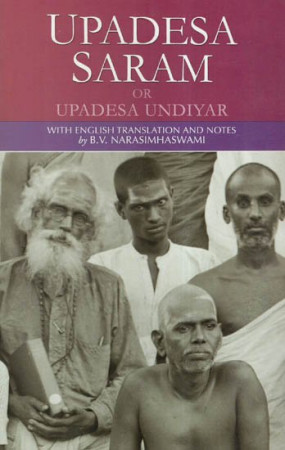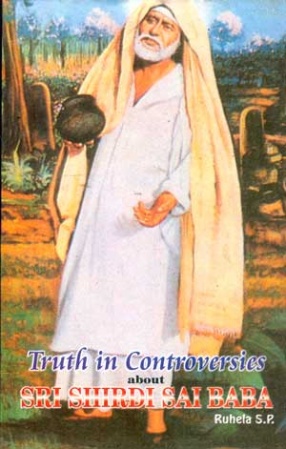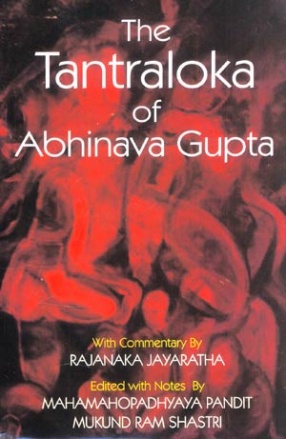Upadesa Saram or Upadesa Undiyar (With English Translation and Notes By B.V. Narasimhaswami)
When this work of Sri Ramana Maharshi is presented, a few words of introduction about his life and works may be expected. Born in December, 1879, the second son of Sundaramier, a pleader of Tiruchuzhi in the Ramnad District, he received his early education at Tiruchuzhi and Dindigul and then proceeded to Madurai where he studied in Scott's Middle School and the American Mission High School. His relatives and companions noticed nothing extraordinary about him except perhaps his occasional absent-mindedness during working hours. The subject of this abstraction was a mystery to his companions as he did not disclose it to anyone at the time. This strange young man was proceeding, however, without any guidance from books or men, to introspect into his own personality and discover his nature. "Who am I?" "What am I?" "Whence am I?" were the queries which, even as a boy, he had started; and he had obtained distinct realisation that he was not the mere perishing body but something deep, subtle and suffused with awareness and Reality-feeling. Alongside of this untaught mysticism and philosophy, he had a deep and simple devotion that centred round "Arunachala". With that holy name, which haunted his memory from childhood, he associated all ideas of God - omnipotence, omniscience, holiness and kindness. He had lost his earthly father at an early age, and Arunachala was to him the "Father in Heaven." He did not know where "Arunachala" was till 1895, when a relative arriving at Madurai stated that he had just returned from Arunachala. "From Arunachala!" cried the startled young man, "Where is It?" The relative was surprised at his ignorance and remarked, "What! Do you not know Tiruvannamalai? That is Arunachala." With such leanings, it is no wonder that young Ramana or Venkataraman - that was his real name - took little interest in most of his studies. Neglect of studies brought on impositions and reprimands from his elders; and these seem to have produced little effect. On 29th August, 1896, he was writing an imposition from Bain's English Grammar. The work after some time disgusted him; and he bundled up Bain and the imposition paper, and tossing them across the room, sat up, closed his eyes and dived within himself. The elder brother who was in the same room watched him in silence for a while, and then broke out with a rebuke, intended to chasten the young spirit, "What business has a fellow here, who behaves like this?" The rebuke struck home. "True," thought young Ramana, "Truly, I have no business here. I will leave home, relations and everything here, for good." Immediately he resolved on going away to Tiruvannamalai - far from his old moorings - and remaining there totally unknown to his relations. He took three rupees out of the money given to him to pay his brother's school fees and took train northward, leaving a note at home which ran as follows: "As I am going to seek my Father by His command, and as the object is meritorious, no sorrow need be felt for this absence and no money need be wasted in searching for this". The reference in the third person to his body which others regarded as Venkataraman, to the Father who commanded him to quit home and seek Him, and the omission to sign the note are significant of the stage of development he had already reached at seventeen. While he was in the train, he passed almost the whole of his time till he reached Villupuram, absorbed in his own thought, and unattracted by his fellow-passengers' chat or the variegated and picturesque scenery of Nature. Finding his funds insufficient for the entire journey, he alighted at Mambalappattu and walked the distance of ten miles to Tirukkoilur where he pledged the only ornaments he wore - a pair of gold ear-rings - and again took train for Tiruvannamalai. As soon as he reached that place, he proceeded straight to the temple of Arunachala and there offered himself with these words, "Father, by Thy command have I come here before Thee." Since then up to his Maha-Nirvana on the 14th of April, 1950 he remained, without any break, at Tiruvannamalai in the presence of his "Father," for more than half a century. Here the hill itself is revered as Jyotir-Lingam, i.e., God in the form of light.
Get it now and save 10%
BECOME A MEMBER







Bibliographic information